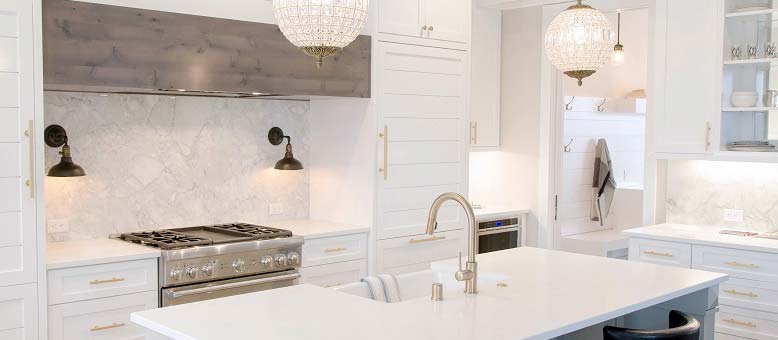7 things I wish I knew before I bought my first home
Breathe easy, first-time homebuyer. As intimidating as the homebuying process can seem at first, if I figured it out, you can too.
Cards on the table – I felt like I was in way over my head when I started shopping for my first home. I had a great realtor and must have looked at a million blog posts like this, but there were still some surprises. With that in mind, I’ve crafted this list of tips to help you avoid the curve balls I dealt with along the way.
Breathe easy, first-time homebuyer. As intimidating as the homebuying process can seem at first, if I figured it out, you can too.
Shall we?
1. Understand how credit really works
I thought I understood credit. I thought wrong. Yes, it’s important to pay your bills on time. But just as important is the amount of credit you can access. For years, my partner and I had turned down offers to increase our credit limit, thinking we were setting healthy boundaries on our possible debt. Well, turns out that we’d hurt our ranking because we were carrying a higher percentage of our available credit. Make sure you don’t just know your credit score – learn how it works too.
2. Check for first-time homebuyers’ programs
There are all sorts of programs out there to help first-time buyers just like you. Provincial programs (and even local ones!) can make a huge difference. Some even offer financial assistance or other tax breaks. See what’s available in your area, and it may really open up what you’re able to do.
3. Know all your available assets
Sarcastic newsflash – homebuying is getting expensive. Sure, you definitely already know that. But you may not know how much money you can access without fees or penalties. In fact, the federal budget released in March 2019 allows first time homebuyers to access more of their RRSP to help shore up your down payment. These rules change, so do some research – you’ll be glad you did.
4. Home inspections can’t protect against everything…
…so make sure you have some money set aside for early repairs. Even with a home inspection, things can be missed, and the inspector or agency isn’t liable. My furnace died two weeks after we moved in. C’est la vie. Fortunately, we had some funds set aside just in case after getting this great advice from our realtor.
5. “Mortgage Pre-approval” doesn’t mean “Mortgage Guarantee”
A mortgage pre-approval helps you find out how much you may be able to borrow. But, it’s important to remember that your pre-approval isn’t the same as actual approval for financing. It’s just the amount you may be able to afford based on your current income, credit score and the information you provided for the pre-approval. The lender still needs to underwrite the loan and the property needs to meet requirements.
What’s the key takeaway? Don’t waive the condition of financing on your offer because you’re pre-approved. It can be risky.
6. Canada mortgage insurance
If you have less than a 20% down payment (which many of us do), you’re required to get mortgage insurance. It’s not the cheapest, but you have the option to have it rolled into your mortgage. When you’re first ‘running the numbers’ on what your mortgage payments will be, don’t forget this piece. And importantly, the sales tax is rolled into your closing costs. Which brings us to our final tip…
7. Know your closing fees: they're more than you’d think
Lawyers, land transfer taxes, and more. Finishing up the deal can cost up to 5% of your new home’s value, so save accordingly – that’s definitely not where you want to be caught shorthanded!
Buying a home can be complicated, but it doesn’t have to be. We’ve got great resources here to help you out. And, if you’re like me, having a checklist is a must. Here’s an incredible and exhaustive checklist and workbook from the good folks at Canada Mortgage and Housing Corporation.
After all, few things are as satisfying than physically crossing things off a list – so print away, home buyers!


